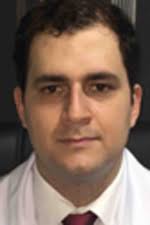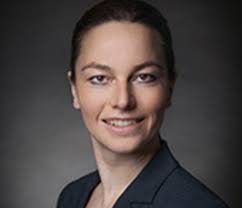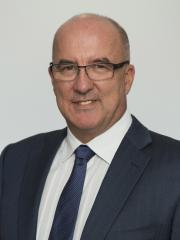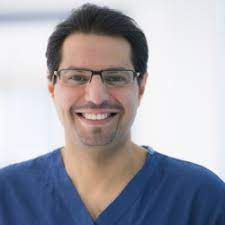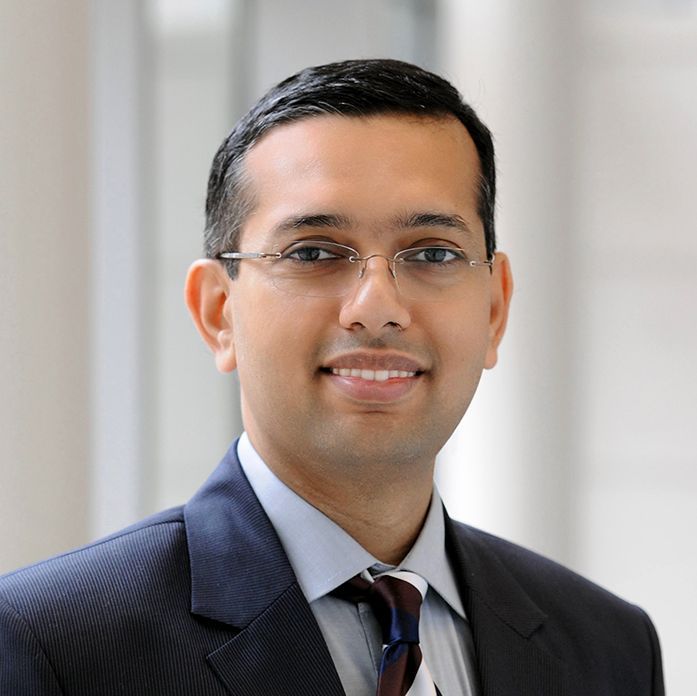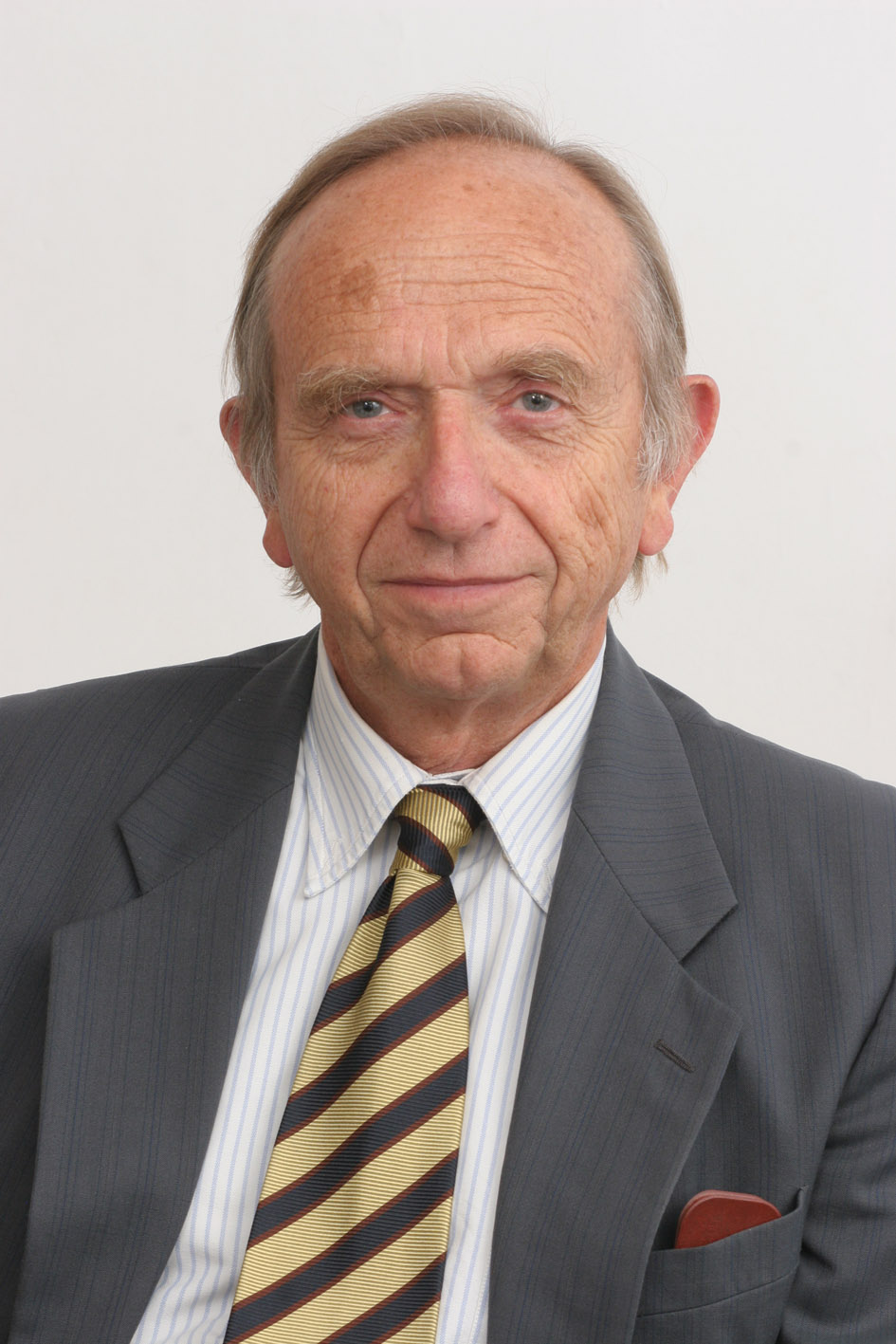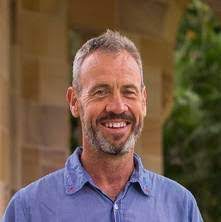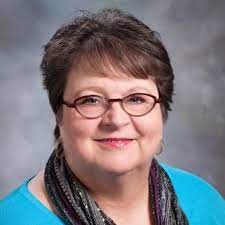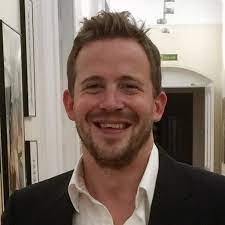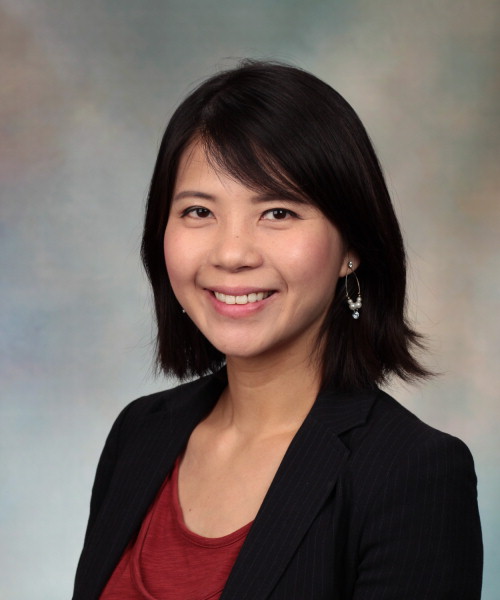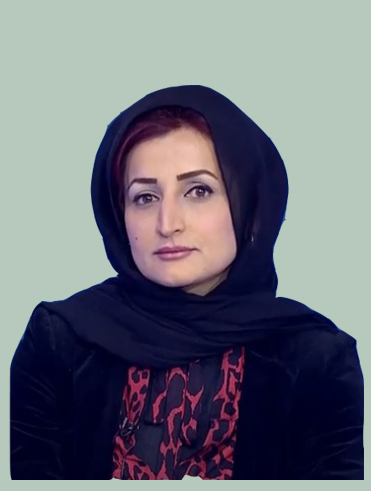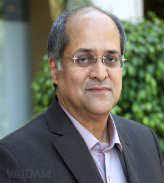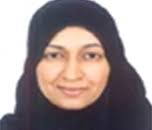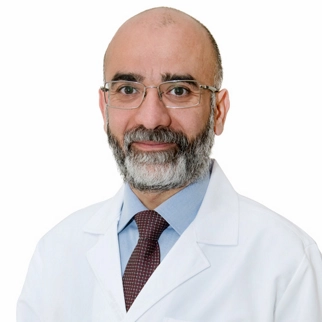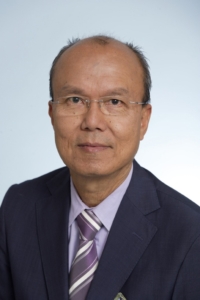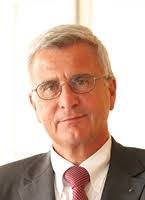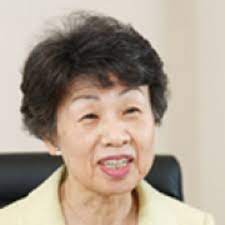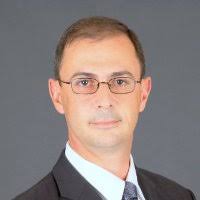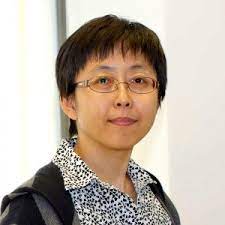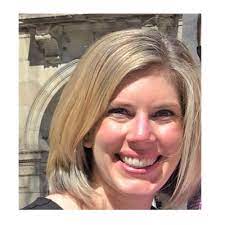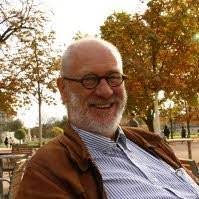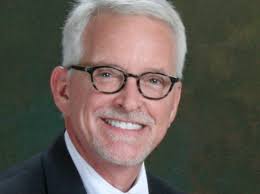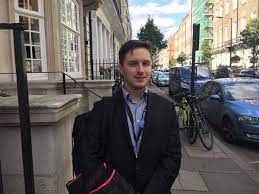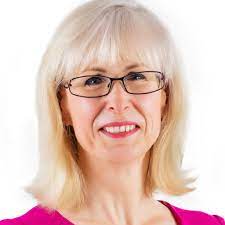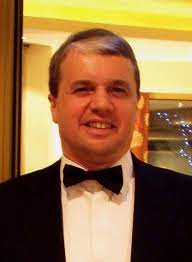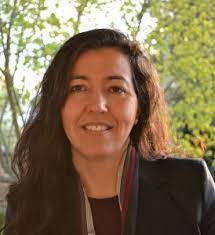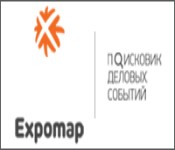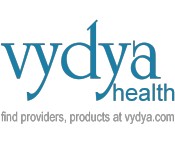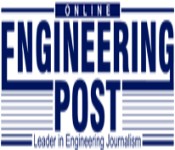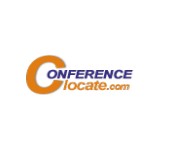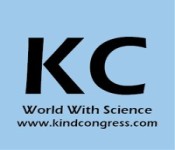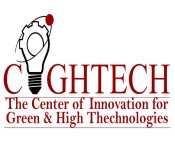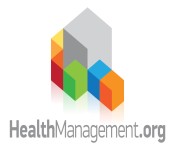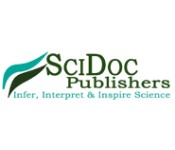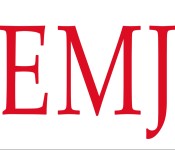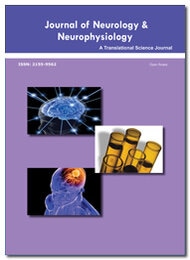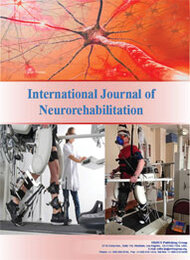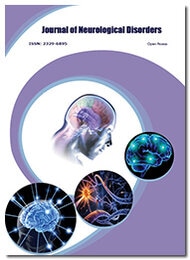Theme: Converted into Webinar
Neuro Congress 2022
We are delighted to announce the "35th European Neurology Congress," which is an extension of series of successful European Neurology congress. On March 23-24, 2022, the conference will be held in the artistic heritage city of Amsterdam, Netherlands.
The conference's purpose is to build translational neuroscience initiatives that will help people to better comprehend how treatment techniques have progressed and how the field has grown in recent years.
Patient care, innovation, digital neurology, and research are four traditional objectives that the conference firmly embraces. Neurology and neuroscience are rapidly emerging domains, featuring cutting-edge technologies redefining our understanding and therapies for neurological disorders.
The theme of European Neurology 2022 is "Shape Up a Better World Without Any Disorders" emphasizing the significance of collaboration and communication among individuals from diverse professions.
The congress involves multiple presentations, interactive breakout sessions, hands-on practice and unrivalled networking prospects. And a gateway to interact in person with groups, colleagues, experts and exhibitors in the area to broaden your knowledge, exchange ideas and to have a memorable time at a wonderful location is just an Honorarium.
Student Poster Competition and Young Research Forum is to be hosted at the conference to encourage students and graduates to submit their original research, which will then be published in Conference Series LLC Journals. All accepted abstracts will be presented in poster sessions during the conference. Conference Series LLC offers all participants unable to attend the conference with an opportunity to submit electronic posters with an abstract posted on the website under the DOI number.
Business Networking is a vendor venue for networking and B2B meetings with "The best academics and peers," and a low-cost, effective marketing method to develop referral-based sales, opportunities, and contacts through their presentations, either in person at meetings and gatherings, or through other contact methods such as telephone, email, digital websites and, increasingly, social and business networks.
Our Congress impart new thoughts, beliefs, techniques and strategies that legitimately influence the way we work together. No other conference will offer a great selection of keynote speakers, high-profile attendees, and engaging content.
European Neurology 2022 will bring together the exchange of legitimate thoughts and perspectives from leading researchers, as well as economic pioneers and speculators in this exciting field. Prominent speakers and leading researchers and specialists from around the world are invited to share their knowledge and experiences.
Event attendees are typically high-level decision makers representing different parts of the industry, and many of the attendees are our previous speakers who know each other. This creates an informal and casual environment with the right attitudes towards gathering new people.
The main theme for European Neurology 2022 is “Shape Up a Better World Without Any Disorders"
We look forward to welcoming you and inviting you to participate in our exciting conference. Provide us the opportunity to meet and greet you in one of the most beautiful urban communities in the world.
It will cover a wide range of fundamentally important topics. European Neurology 2022 focuses on the latest research and various tools to help treat infections. This meeting will be the best place to learn about the latest research and future innovative work in the fiend of neurology.
A neurological problem is the confusion occurred in the nervous system; it can also clear up as additional electrical or biochemical abnormalities in the spine, brain or some other nerve. This can also provoke different types of manifestations.
There are in excess of 600 sorts of Neurological Disorders, for example, Epilepsy, Alzheimer's infection, Parkinson's sickness, stroke, cerebrum tumours etc. A gauge of 6.8 million individuals bites the dust each year.
Session 01: Neurology
Neurology is the branch of medicine that deals with disorders of the system that includes the brain, blood vessels, muscles, and nerves. Most areas of neurology are: the involuntary, central and peripheral nervous systems.
- Central nervous system
- Peripheral nervous system
- General neurology
- Cerebrovascular diseases
Session 02: Autonomous neurology
Autonomous neurology is a branch of neurology that studies the automatic activities of the body and the nervous system. Involuntary neurology involves the treatment of neurons that affect the heartbeat, widening or narrowing of the veins, swallowing, etc. The dynamic degeneration of the nerve cell of the involuntary system leads to different types of disorders.
- Symptoms of involuntary dysfunction
- Dizziness and fainting on standing or hypotension.
- Inability to change your heart rate while exercising or exercise intolerance.
- Abnormal sweating that can alternate between excessive and insufficient sweating.
Session 03: Behavioral Neurology
Behavioral Neurology is encompassed within an area of ​​neurology that manages the study of analysis, treatment and also the group of patients tormented by altered behavior due to a mental problem. Some of the disorder occurs due to a mental disability or psychological injury. This problem will change the power of cognition and thinking.
Session 04: Neurological disorders
The main cause of neurological disorders is the progressive loss of structure and performance of neurons. It can also cause the death of neurons. Medicine disorders can cause diseases like Parkinson's, ALS, Huntington's, etc. Several test points occur, but these diseases are incurable. It progresses to the degeneration or death of nerve cells. This deterioration causes a trait psychological behavior and various clinical options.
Neurological disorders:
- Poor or weaker judgment
- Personality changes; become irritable, anxious, suspicious, inappropriate
- Sudden weakness, loss of symptoms or vision
- Tremors, tremors
- Difficulty walking due to shuffling or poor balance
- Loss of consciousness or seizures, etc.
Session 05: Neurophysiology or Clinical Physiology
Neurophysiology can be a branch of science wherever brain function is studied to study bioelectric activity, whether spontaneous or stimulated. Covers pathophysiology and clinical strategies for the diagnosis of diseases in the CNS and PNS. The branch helps us to accurately diagnose the intensity of brain damage.
- Electromyography
- Evoked potentials
- Intraoperative monitoring
Session 06: Cognitive Neurology
Cognitive neurology is the study of neurobiology, psychological science, and psychological medicine. All branches overlap in characteristic psychological neurology. The research focuses on the neural substrates of mental processes and their manifestations of activity.
Session 07: Geriatric Neurology
Geriatric Neurology is a branch of neurology that deals with the detection, medication, and treatment of specialized medical conditions that are prevalent due to the effects of age-related diseases. In addition, it includes specialized observation of the aging of the central nervous system and its vulnerable effects due to associated specialized medical conditions. This neurological study also includes insanity, Alzheimer's, Parkinson's, and gait disorders, and therefore the effects of drugs on the nervous system.
Session 08: Neuropharmacology
Neuropharmacology is the study of how drugs affect the cellular function of the nervous system and the neural system through which they affect behavior. There are two branches of behavioral and molecular neuropharmacology. The behavior is primarily focused on studying how drugs affect human behavior, including studying how drug addiction and addiction affect the human brain. Molecular neuropharmacology involves the study of neurons and their neurochemical communication with the general objective of developing drugs that have positive effects on neurological function.
- Medications for anxiety
- Cutting-edge medications
- Neuroimmune pharmacology
- Neurochemical interaction
- Latest advances in neuropharmacological therapy
- Genome-wide association studies
- Biochemical genetics
Session 09: Neurogenetics
Neurogenetics is the branch of science that mixes genetics and genetic neurology. It is the study of what is happening and the functioning of the nervous system in addition, because the role of genes compete in its development. A multitude of disorders and diseases can be determined by neurogenetics. Study the role of genetics in the development and functioning of the nervous system. It considers neuronal characteristics as phenotypes and is based primarily on the observation that the nervous systems of individuals, even those belonging to the same species, may not be identical.
Session 10: Neural Engineering
Neural engineering is used to understand how to repair, replace, enhance, or otherwise exploit the properties of a neural system using various specialized medical or biotechnological techniques. Neuroengineers can solve design problems at the interface of living tissue or non-living structure. They use various electromagnetic techniques, such as MRIs, to examine brain activity and learn.
Session 11: Neuroimaging
It can even be called brain imaging and is used in numerous techniques to map, directly or indirectly, the structure and function of the nervous system. It is a relatively new discipline in neurobiology. Doctors who do neuroimaging are called neuroradiologists. Neuroimaging has two broad classes of structural imaging and directed imaging.
- Anatomical imaging
- Fusion imaging
- Practical and Operational Neuroimaging
- Transmission male person & Kurtosis imaging
- Single-Photon Emanation subtracted axial imaging
Session 12: Neuro Immunology
It is the field that mixes neurobiology and immunology, which is the study of the nervous system and therefore the study of the immune system individually. Neuro immunologists are more aware of the interactions between these two complicated systems. The goal of neuroimmune analysis is to develop our understanding of the pathology of safe neurological diseases without a clear etiology. Neuroimmunology contributes to recent drug treatments for many neurological diseases.
- Autoimmune neuropathies
- Neuroimmune
- Neurovirology
- Neuroinflammation
Session 13: Neurosurgery
Neurosurgery refers to any operation performed on the brain or spinal cord. It is the medical specialty that deals with the prevention, diagnosis, surgery and rehabilitation of diseases that affect all parts of the nervous system, as well as the brain, neural structure, peripheral nerves and vasculature.
- Vascular neurosurgery
- Pediatric neurosurgery
- Neurological and psychiatric disorders
- Brain injury and brain tumor
- Functional neurosurgery
- Spinal neurosurgery
- Skull base neurosurgery
Session 14: Neuropsychiatry
Neuropsychiatry is the branch of the medicine psychological disorders of nervous system disorders. It includes both neurology and psychiatry. It is closely related to the field of neuropsychology and behavioral neurology.
Session 15: Neuro-Oncology
Neuro-Oncology is supposed to be the study of cancer in the brain and spinal cord Cancer of the nervous system is often serious and critical. In some cases, chemotherapy and radiation therapy will prolong survival.
- Surgical neuro-oncology
- Neurosurgical oncology
- Tumor biomarkers
- Rehabilitation after brain injuries
- Pathophysiology in neuro-oncology
- Types of pain in neuro-oncology
- Pediatric neuro-oncology
Session 16: Parkinson's disease
Parkinson's the disease is characterized by loss of Parkinson's disease. Brain or funicular cells that over time lead to dysfunction and inability to function, predominantly affecting dopamine-producing neurons in a very specific space where cells produce dopamine. The symptoms of Parkinson's disease develop step by step. They usually start with a small tremor in one hand and a feeling of stiffness in the body.
Symptoms:
- Tremor or tremors
- Slow movement
- Stiff muscles
- Changes in language
- Changes in spelling
Session 17: Computational neurology
Computational neurology studies the brain and its functions using structures from the science of the information evoked by the nervous system. It involves the use of laptop simulations, and therefore theoretical models, to verify the functions of the brain and the system.
- Tumors
- Cauda equina syndrome
- Spina bifida
- Lumbar spinal stenosis
- Scoliosis
Session 18: Alzheimer's disease
Alzheimer's disease is a problem of neural structure. Alzheimer's disease is the generally accepted kind of insanity, a group of people with mental retardation. Alzheimer's is dynamic and irreversible. Cognitive status is one of the main indicators of a progressive deterioration of various intellectual and thinking skills, known as intellectual abilities, and changes in identity or behavior.
- Alzheimer's disease
- Treatment of Alzheimer's disease
- Dementia related to stroke
- Mathematical and computational modeling of dementia
- White matter and dementia
- Sleep and dementia
- Dementia at an early age
- Multiple infarct dementia Alzheimer’s disease
Session 19: Radiology
The area of ​​radiology that specializes in the use of radioactive substances, X-rays, and scanning equipment to diagnose and treat disorders of the nervous system. Neuroradiology encompasses clinical imaging, therapy, and basic science of the central and peripheral nervous system, including but not limited to the brain, spine, head and neck, interventional procedures, imaging and intervention techniques, and educational techniques. , socioeconomic and educational related. medical law issues.
Session 20: Neuropsychology and Neurorehabilitation
Neuropsychology deals with both neurology and psychology. It is the study and characterization of behavioral changes that follow trauma or neurological disease. Neurorehabilitation is a complex medical process that helps to recover from an injury to the nervous system or to minimize functional changes.
- Cortical remapping
- Clearly requires control
- Intense stimulation of disturbed brain networks
Session 21: Metastasis
Metastasis is the spread of a pathogenic specialist from an underlying or essential site to an alternative or auxiliary site in the host's body. The term is often used to refer to the metastasis of a cancerous tumor. The spread of cancer cells from where they originally framed to another part of the body. During metastasis, cancer cells break away from the first (essential) tumor, migrate through the blood or lymphatic system, and structure another tumor in various organs or tissues of the body. The new metastatic tumor is a type of cancerous growth similar to the essential tumor. Cancer occurs after cells are inherited to reproduce quickly and unsafe. This uncontrolled proliferation by mitosis produces an essential heterogeneous tumor. The cells that make up the tumor end up undergoing metaplasia, followed by dysplasia and then anaplasia, creating a malignant phenotype. This malignancy allows invasion to spread, followed by intrusion into a second site for tumorigenesis.
- Transkoelom.
- Lymphatic spread.
- Hematogenous spread.
- Canalicular Dissemination
Session 22: Pediatric Neurology
Pediatric neurology, or pediatric neurology, is a medical specialty that deals with the diagnosis and treatment of neurological disorders in newborns (newborns), infants, children, and adolescents. The discipline of child neurology encompasses diseases and disorders of the spinal cord, brain, peripheral nervous system, autonomic nervous system, muscles, and blood vessels that affect people in this age group. When a child has nervous system problems, a child neurologist has the training and expertise to evaluate, diagnose, and treat the child. The clinical pictures of child neurologists are very different, ranging from relatively simple diseases such as migraines or cerebral palsy to more complex and rare diseases such as metabolic diseases or neurodegenerative diseases.
Session 23: Neurophthalmology
Neurophthalmology, a branch of neurology and ophthalmology, is the treatment of visual disturbances related to the nervous system, that is, visual disturbances that do not originate in the eyes themselves. We use almost half of the brain for activities related to vision. Neurophthalmologists receive special training and experience in problems of the eyes, brain, nerves, and muscles. These physicians complete at least five years of clinical training after completing their medical degree and are generally certified in neurology, ophthalmology, or both. Neuro-ophthalmologists have unique skills to evaluate patients from a neurological, ophthalmic, and medical perspective to diagnose and treat a wide variety of problems.
Session 24: Neurodegenerative Diseases
Neurodegenerative diseases occur when nerve cells in the brain or peripheral nervous system lose their function over time and eventually die. Although treatments can help alleviate some of the physical or mental symptoms associated with neurodegenerative diseases, there is currently no way to slow the progression of the disease and there are no known cures. The risk of suffering from a neurodegenerative disease increases dramatically with age. Millions of people around the world are affected by neurodegenerative diseases. Alzheimer's disease and Parkinson's disease are the most common neurodegenerative diseases. Degenerative nerve diseases affect many of your body's activities, such as balance, exercise, speech, breathing, and heart function. Many of these diseases are genetic. Sometimes the cause is a medical condition such as alcoholism, a tumor, or a stroke. Other causes could be toxins, chemicals and viruses
Some of the most common symptoms of neurodegenerative diseases are:
- Memory loss
- Forgetfulness
- Apathy
- Anxiety
- Excitement
The European Neurology 2022 will focus on International Neurology Analysis Societies, Associations and Organizations. This event can bring together neurologists, principals, neurosurgeons, department heads, psychiatrists, professors, students from around the world, and neuroscience researchers, public officials, and world leaders to advance the department of neurology. The European Neurology 2022 will focus on a variety of diseases and the healing of the brain and neurons. According to a recent WHO survey, neurological disorders Alzheimer's and dementia, epilepsy and more appear to cause more than 12% of deaths on average worldwide, and it is also a prophecy that the number of lives will disappear due to the disappearance of neurostimulations will increase from 95 million worldwide in 2015 to 103 million in 2030. The global cost of neurological screeching was only estimated at $ 2.5 trillion in 2010 and it appears that the future value will be $ 6 trillion in 2030.
Market growth of neuroscience:
The global neuroscience market was at $ 28.42 billion in 2016 and appears to be growing with a CGAR of 3.1% over the forecast period. Strong influencers, such as ongoing neurological mapping research, neuroscience-based initiatives from government agencies, and algorithms being implemented in the neuroscience field, appear to be driving market growth.
Prestigious Award for Young Researchers in European Neurology 2022 - "Shape up a Better World without Disorders"
The Neurological Disorder Committee 2022 is pleased to announce the "European Neurology Congress 2022" in Amsterdam, Netherlands with the theme: "Shape up a Better World without Disorders. The Neurology Conference program deals with strategic discussions.
European Neurology 2022 Young Scientist Awards: Committee
European Neurology 2022 aims to recognize a prestigious award for young researchers, scientists, early career researchers, postgraduates, postdocs, interns and talented young professionals in recognition of their outstanding contribution to the conference theme. The Young Scientist Awards strive to provide young academics with strong professional development opportunities by meeting with experts to exchange and share their experiences on all aspects of neurology.
Young Research`s Awards at Neuro Congress 2022 for the nomination: Young Researcher Forum Outstanding Masters / Ph.D. / Postdoctoral thesis presentation, only 25 accepted presentations at the Young Research Forum European Neurology 2022.
Benefits of Best Young Scientist Award are:
- Young Scientist Award Certificate of recognition and reminder of the winners.
- Our conferences offer the best platform for your research through oral presentations.
- Learn about career enhancement with the latest technologies over networks.
- Young scientists are informed in a timely and adequate manner through this forum.
- Platform for young researchers working together for better development.
- Provide the opportunity to interact with established senior research and researchers around the world in the field.
- Share ideas with leading researchers and mentors
It is a great privilege for young researchers to know the research areas to expand their research knowledge.
Eligibility to participate
- Young scientists, postgraduates, postdocs, interns, junior professors
- The presentation must take place in the scientific sessions of the congress.
- Each Young Researcher / Young Scientist can only submit one paper (as first or co-author).
- Age limit under 35
- All submissions must be in English
Visa Application Documents You should only apply for business visas to attend and attend conferences. Contact your nearest Amsterdam, Netherlands Travel Agency/Visa Information Center/Embassy for the correct application form.
All visas for the visit to Amsterdam, Netherlands are processed by the respective embassy authorities in the correct way only after the presentation of the corresponding documents.
If no documents are provided or if the guidelines are not followed, the competent authorities hold the right to reject/cancel the visas.
The minimum documents that may be required when applying for the visa from / Amsterdam, Netherlands include:
- Official Letter of Invitation
- Letter of Acceptance/Approval for abstracts (if you are a speaker)
- Proof of payment receipt for registration
- Hotel Booking Confirmation Letter for accommodation issued on conference letterhead
Note: For the Letter of Invitation and Accommodation Confirmation, payment of registration and accommodation fees is a prerequisite. Please contact us for more information.
Conference Highlights
- Neurology
- Autonomous Neurology
- Behavioral Neurology
- Neurological disorders
- Neurophysiology or Clinical Physiology
- Cognitive Neurology
- Geriatric Neurology
- Neuropharmacolog
- Neurogenetics
- Neural Engineering
- Neuroimaging
- Neuro Immunology
- Neurosurgery
- Neuropsychiatry
- Neuro-Oncology
- Neuroinformatic and Computational neurology
- Parkinsons disease
- Alzheimers disease
- Radiology
- Neuropsychology and Neurorehabilitation
- Metastasis
- Paediatric Neurology and Epilepsy
- Neurophthalmology
- Neurodegenerative Diseases
- Molecular brain analysis
To share your views and research, please click here to register for the Conference.
To Collaborate Scientific Professionals around the World
| Conference Date | March 23-24, 2022 | ||
| Sponsors & Exhibitors |
|
||
| Speaker Opportunity Closed | Day 1 | Day 2 | Day 3 |
| Poster Opportunity Closed | Click Here to View | ||
Useful Links
Special Issues
All accepted abstracts will be published in respective Our International Journals.
- Journal of Neurology & Neurophysiology
- International Journal of Neurorehabilitation
- Journal of Neurological Disorders
Abstracts will be provided with Digital Object Identifier by








